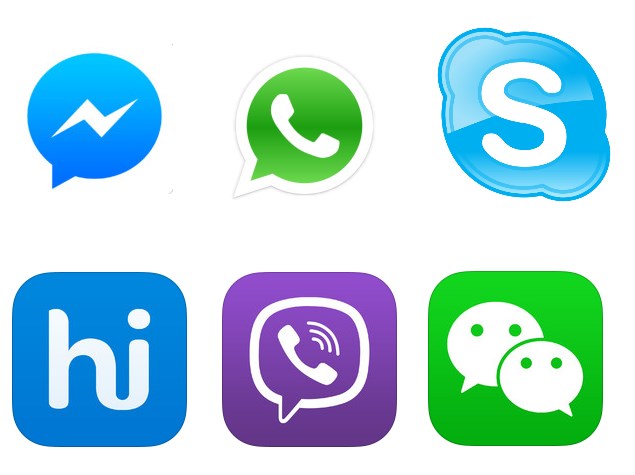Trai Drops Plans to Impose Extra Fees on WhatsApp, Skype: Report
By NDTV Correspondent | Updated: 19 August 2014 10:58 IST

Click Here to Add Gadgets360 As A Trusted Source

Advertisement
In a victory for network neutrality, fair play and common sense, the Telecom Regulatory Authority of India (Trai) has decided not to entertain demands from cellular service providers to impose revenue-sharing rules on apps and services which allow users to route calls and messages via the Internet. The proposal would have affected users of several popular apps including WhatsApp, Skype, Viber, Hike, WeChat, and Facebook Messenger
As reported by the Economic Times, Trai has now rejected the idea and even cancelled plans to hold a consultation on the matter. According to the report, Trai feels that revenue losses can be offset by growth in the usage of data services and that there is no need to intervene at this time.
The proposal was made by mobile service providers earlier this month on the basis that they were suffering a loss of revenue due to declining use of cellular voice and SMS services. The move sparked widespread criticism and was seen as a grab for money, since the carriers already charge for Internet connectivity and it should not matter what users do with their services.
The demand for a "level playing field" with free apps, would have actually created a distinction between types of data sent and received by users, in effect restricting usage of apps and services, and giving operators control over what users do with their Internet connections.
Several consumers raised objections to the very idea of imposing fees on specific apps, pointing out that Internet services are already overpriced and are way too slow, by global standards. Such rules would also have set dangerous precedents as to who can potentially claim compensation for loss of revenue from any new player or service provider that disrupts their revenue model in the future.
Trai had held a seminar titled "Regulatory Framework for OTT Services" on August 5, during which various industry stakeholders had put forward their viewpoints. This would have been the first step in a consultation process, which has now reportedly been called off.
As reported by the Economic Times, Trai has now rejected the idea and even cancelled plans to hold a consultation on the matter. According to the report, Trai feels that revenue losses can be offset by growth in the usage of data services and that there is no need to intervene at this time.
The proposal was made by mobile service providers earlier this month on the basis that they were suffering a loss of revenue due to declining use of cellular voice and SMS services. The move sparked widespread criticism and was seen as a grab for money, since the carriers already charge for Internet connectivity and it should not matter what users do with their services.
The demand for a "level playing field" with free apps, would have actually created a distinction between types of data sent and received by users, in effect restricting usage of apps and services, and giving operators control over what users do with their Internet connections.
Several consumers raised objections to the very idea of imposing fees on specific apps, pointing out that Internet services are already overpriced and are way too slow, by global standards. Such rules would also have set dangerous precedents as to who can potentially claim compensation for loss of revenue from any new player or service provider that disrupts their revenue model in the future.
Trai had held a seminar titled "Regulatory Framework for OTT Services" on August 5, during which various industry stakeholders had put forward their viewpoints. This would have been the first step in a consultation process, which has now reportedly been called off.
Comments
Get your daily dose of tech news, reviews, and insights, in under 80 characters on Gadgets 360 Turbo. Connect with fellow tech lovers on our Forum. Follow us on X, Facebook, WhatsApp, Threads and Google News for instant updates. Catch all the action on our YouTube channel.
Further reading:
Hike, India, Skype, Trai, Viber, WeChat, WhatsApp, telecom, Net Neutrality, Telecom Regulatory Authority of India
Related Stories
Popular on Gadgets
- Samsung Galaxy Unpacked 2026
- iPhone 17 Pro Max
- ChatGPT
- iOS 26
- Laptop Under 50000
- Smartwatch Under 10000
- Apple Vision Pro
- Oneplus 12
- OnePlus Nord CE 3 Lite 5G
- iPhone 13
- Xiaomi 14 Pro
- Oppo Find N3
- Tecno Spark Go (2023)
- Realme V30
- Best Phones Under 25000
- Samsung Galaxy S24 Series
- Cryptocurrency
- iQoo 12
- Samsung Galaxy S24 Ultra
- Giottus
- Samsung Galaxy Z Flip 5
- Apple 'Scary Fast'
- Housefull 5
- GoPro Hero 12 Black Review
- Invincible Season 2
- JioGlass
- HD Ready TV
- Latest Mobile Phones
- Compare Phones
Latest Gadgets
- Tecno Pova Curve 2 5G
- Lava Yuva Star 3
- Honor X6d
- OPPO K14x 5G
- Samsung Galaxy F70e 5G
- iQOO 15 Ultra
- OPPO A6v 5G
- OPPO A6i+ 5G
- Asus Vivobook 16 (M1605NAQ)
- Asus Vivobook 15 (2026)
- Brave Ark 2-in-1
- Black Shark Gaming Tablet
- boAt Chrome Iris
- HMD Watch P1
- Haier H5E Series
- Acerpure Nitro Z Series 100-inch QLED TV
- Asus ROG Ally
- Nintendo Switch Lite
- Haier 1.6 Ton 5 Star Inverter Split AC (HSU19G-MZAID5BN-INV)
- Haier 1.6 Ton 5 Star Inverter Split AC (HSU19G-MZAIM5BN-INV)
© Copyright Red Pixels Ventures Limited 2026. All rights reserved.







![[Partner Content] OPPO Reno15 Series: AI Portrait Camera, Popout and First Compact Reno](https://www.gadgets360.com/static/mobile/images/spacer.png)









